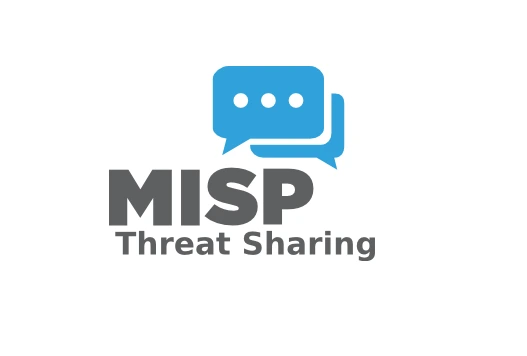cyber security
free open source software
malware analysis
threat intelligence
automatedthreatintelligence, cert, csirt, cti, cyberattack, cyberaware, cybercrime, cyberdefense, cybersec, cybersecurity, cybersecuritytools, cyberthreatdetection, cyberthreatintel, cyberthreats, cyberthreatsharing, defensivesecurity, hackers, incidentresponse, indicatorsofcompromise, infosec, infosecurity, intelligenceplatform, ioc, isac, malware, malwareanalysis, misp, mitreattack, networksecurity, opensource, opensourceintelligence, securityautomation, securityplatform, SIEM, SOAR, soc, threatdetection, threatindicators, threatintel, threatintelligence, threatlandscape, threatsharing
9M2PJU
0 Comments
What is MISP Threat Sharing? Collaborative Cyber Threat Intelligence
In today’s rapidly evolving cyber threat landscape, no organization is safe on its own. Hackers are more coordinated, malware is more sophisticated, and threats move faster than ever. So how do defenders keep up?
One answer: collaboration.
That’s where MISP Threat Sharing comes in — a powerful, open-source threat intelligence platform built to collect, store, analyze, and share cybersecurity information. This tool empowers organizations to work together against cyber threats.
🧠 What is MISP?
MISP stands for Malware Information Sharing Platform.
It is a free and open-source platform designed to help security teams improve detection, response, and prevention of cyberattacks by sharing threat intelligence.
Created initially by the Luxembourgish government and maintained by a global open-source community, MISP has grown into one of the most widely used threat intelligence platforms in the world.
💡 Why Use MISP?
MISP is not just a database of bad IPs and hashes — it’s a collaborative platform that helps defenders:
- Centralize threat data from various sources.
- Correlate events and indicators to identify relationships between threats.
- Share intelligence securely with trusted peers, partners, or global communities.
- Automate responses by integrating with other security tools and platforms.
In short, MISP helps you understand not just what is happening, but who’s behind it, how, and why.
📦 What Can You Share With MISP?
MISP is built around the concept of “events” — containers for all the information related to a particular threat or incident.
Each event may contain:
- 🔍 Indicators of Compromise (IOCs): IP addresses, file hashes, URLs, domain names
- 🐞 Malware details: names, families, behavior patterns
- 👤 Threat actor profiles: known groups, motivations, aliases
- ⚔️ Tactics, Techniques, and Procedures (TTPs) aligned with the MITRE ATT&CK framework
- 🧪 YARA and SIGMA rules: for malware detection and log analysis
- 📁 Malware samples (optional and securely stored)
- 📌 Geolocation and timeline data
Everything is tagged, timestamped, and classified for ease of use and retrieval.
🤝 Sharing and Collaboration
One of MISP’s biggest strengths is controlled, community-driven threat sharing. You can:
- Host your own private MISP instance.
- Join a sharing community (e.g. CSIRT, ISAC, or sector-specific group).
- Define who sees what, using distribution rules (Your Org Only, Community Only, or All Connected Instances).
- Synchronize automatically with other MISP servers to keep data fresh.
You can choose to consume, contribute, or do both.
🔄 Integration & Automation
MISP isn’t meant to live in a silo. It integrates seamlessly into your existing security stack:
- 🛡️ SIEM systems like Splunk or ELK
- 🔁 Security Orchestration platforms (SOAR)
- 🔍 Intrusion Detection Systems like Suricata or Snort
- ⚙️ Automation scripts using its robust REST API
- 📤 Export feeds in multiple formats: STIX, OpenIOC, CSV, JSON, etc.
Want to automatically block malicious IPs found in MISP? Or generate detection rules from threat events? MISP makes it possible.
🧰 Key Features
| 🔧 Feature | 📝 Description |
|---|---|
| Open Source | Free to use, modify, and host yourself |
| Web Interface + REST API | Easily used via browser or scripted automation |
| Advanced Correlation Engine | Finds links across thousands of indicators and events |
| Tagging & Taxonomies | Organize and classify threats using standards |
| Warning Lists | Helps avoid false positives and known good data |
| Data Synchronization | Share updates between trusted communities and MISP servers |
| User Access Control | Fine-grained permissions to control who can view or edit data |
🏢 Who Uses MISP?
- National CERTs and CSIRTs
- Law enforcement and intelligence agencies
- Critical infrastructure providers
- Banks and financial institutions
- Universities and research labs
- Private sector SOCs and MSSPs
- Open-source threat analysts and hobbyists
MISP is not just a tool — it’s a global movement of cyber defenders.
🌍 Getting Started with MISP
Want to try MISP? Here are a few ways:
- 📦 Install MISP on your own server
- 🐳 Use MISP Docker containers for easier deployment
- 📚 Read the full MISP user documentation
- 🤝 Join the MISP Threat Sharing Community
🔗 Final Thoughts
In cybersecurity, knowledge is power — but shared knowledge is even more powerful.
MISP empowers organizations to break down silos, connect dots across incidents, and stay ahead of attackers by building a shared threat intelligence ecosystem.
Whether you’re a small business, a SOC team, or part of a national cyber agency — MISP helps you see the bigger picture.
📎 Useful Links
- 🔗 Official Website: https://www.misp-project.org
- 📖 Documentation: https://misp.github.io/MISP/
- 💻 GitHub Repository: https://github.com/MISP/MISP







Post Comment